The heavy, wet, guttural
small-plane engine
fights for air, and goes down in humid darkness
about where the airport should be.
I take a lot for granted,
not pleased to be living under the phlegm-
soaked, gaseous, foggy and irradiated
heavens whose angels wear collars in propjets
and live elsewhere in Clean Zones,
but figuring the air is full of sorrows.
I don’t blame
the quick use of the entire earth
on the boozy
pilot
come down to get a dose of cobalt
for his cancer. He’s got
a little life left, if
he doesn’t have to take all day to reach it.
With the black patches
inside him, and
the scars and the streaks and the sick stomach,
his life is more and more like
that of the lowliest child chimney sweep
in the mind of the great insensible,
William Blake. William Blake,
the repeated one, Blake, half mad,
half remembered,
who knew his anatomy, down to
the little-observed muscle in the shoulder
that lifts the wing.
The little London chimney sweeper
reaches up and reaches down.
In his back,
every vertebra is separated from the long
hours of stretching.
With one deep, tired breath,
the lungs go black.
By the Holiday Company crane,
adding a level to the hospital,
on the highest land in the county,
heavy sits the pure-white Air Care
helicopter, with
its bulging eye.
It has kept many going, a good buy,
something.
Now someone I know says Blake
in anger,
angry for his brother in the factory
and his sister on the ward,
but tonight I have no more anger
than the muscle
that lifts my knee when I walk.
Another pleads with the ocean
that the words for
suffering and trouble
take place in a sound that will be all sounds
and in the tidal roll
of all our lives and every event,
but I am silent by water,
and am less to such power
than a failed lung.
And I think it is only a clever trick to know
that one thing may be contained
in another. Hence,
Blake in the sweep, one in the ground
in one in the air,
myself in the clinic for runaway cells,
now and later.





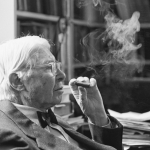

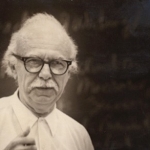

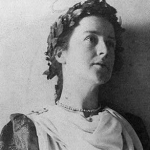
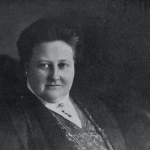
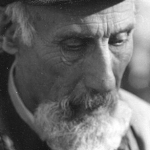


Comment form: